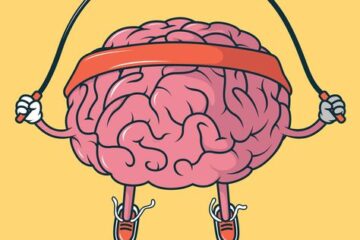The World of Health and Fitness
In order to understand our relationship with health and fitness, I think it’s important to first observe what the broader context of it is. In other words, we should recognize how the world of health and fitness is being presented to us in society and in our daily lives. I’m going to share my two cents on what I perceive the world of health and fitness to be; however, you could have a totally different view on it which is just as valid. Health and fitness overall can be very daunting, at least it seems like it to me. Just from observing on social media and on the news, there is so much information on how to stay healthy and fit. The whole industry is very saturated with different influencers, brands, etc. that it can be really difficult to find good advice.
Personally, I have found some of the “advice” from health and fitness experts to be so confusing because of the amount of information that is out there. There are some people saying to stay away from certain ingredients when grocery shopping while others say it doesn’t matter. Some say organic is good while others say organic isn’t really good for your body. There is advice on how many hours of sleep to get, how much water to drink in a day, how many steps to take everyday, etc. While these pieces of advice aren’t inherently bad, consuming all of this in one or two hours on social media can become a stressor.
I’ve often found myself stressing about keeping up this perfect diet and lifestyle. I want to get my 10K steps and my 8 hours of sleep, and when I don’t, I feel bad about it. Some thoughts that I’ve had from consuming advice from these influencers and experts have gone like this:
“I have to check the ingredients on all of my groceries to make sure they are natural and don’t have inflammatory properties”
“I should find a way to incorporate bone broth into my diet. And bee pollen. And more antioxidants.”
“I need to be drinking a gallon of water a day.”
And it goes on and on. Again, these things are not inherently bad, so if you do some of the things I’ve mentioned and it works for you, then keep going! However, something I’ve realized looking back on these thoughts that I’ve had is that the world of health and fitness can be quick to make sweeping generalizations and encourage consumerism. For instance, drinking a gallon of water a day is just not feasible for me. The one time I tried it, I felt like I was waterboarding myself all day, and my stomach hurt. A gallon of water is too much for my height and weight, and that’s okay. I had to learn how to personalize the information I was receiving to fit my own lifestyle.
Another thing I noticed myself doing a lot was convincing myself that I needed to buy certain ingredients or foods to “fix” my lifestyle. There is a lot of talk about different health benefits from different foods, but you really don’t need most of them. Constantly consuming new health fads and trends can honestly start to break the bank. Don’t get too sucked into thinking you need all of these different foods to be healthy because “healthy” doesn’t have to look one certain way.
What I’ve Learned
Recognition
After struggling to define what a healthy lifestyle looks like, I finally just got tired of hearing all of the different pieces of advice. I’m sure many of you have felt the same way when looking at health and fitness as a whole. I felt overwhelmed and discouraged because everything that I was being told to do felt unattainable. Honestly, to a certain degree, it is. Maintaining all of these different areas of your lifestyle perfectly is just not realistic. This is the first lesson that I learned, and I think it’s an important catalyst to creating a healthy relationship with fitness.
Recognizing that a healthy lifestyle does not connote perfection is powerful. This can go for anything in life, not just health and fitness. You don’t need to have a fully organic diet with just whole foods. While that might be attainable for some people, it can often be way more expensive and time consuming. You don’t need to feel bad about yourself if you don’t have a fully balanced plate for every meal. The value, in my opinion, is in trying. If you are making the effort, that goes a long way. That effort is most effective when you start small.
Starting Small
I believe when you’re trying to change any aspect of your lifestyle, starting small can be the key to longevity. If you try to instantly switch up your diet to only whole foods or only protein-packed meals, then it’s most likely going to fail because it will be too drastic of a change. Starting small can look like making sure you have a fruit or vegetable with each meal or keeping a water bottle near you instead of a soda.
This can also apply to fitness. I’ve had to learn this while running. I think I’ve spoken on it before, but I struggle with wanting to go too fast and too far when running. I often start out too confident resulting in my burning out way earlier than I should. Starting in small increments and trying to be as consistent as possible is the most effective way I’ve found to become a better runner. For me, this meant starting out with one mile for a couple weeks and then slowly add on mileage. I have also had to remind myself to go slower than I think I should. Most of the time, running at what feels like a glacial pace is really what your body needs to build endurance. Adding in little changes to your lifestyle is truly the key to success when it comes to creating change. When you do that, you are more likely to feel empowered and encouraged to keep improving.
Balance, Balance, Balance!
It’s all about balance!! Another lesson I’ve had to learn is to learn how to work with your current situation. When it comes to diet and healthy foods, I’ve had to accept that there’s always going to be something “wrong” with anything I eat. It’s virtually impossible for me to eat completely clean because I’m a college student who’s on a budget and looking for convenience. There will always be some chemical or inflammatory ingredient in my foods. I’m sure I’ve ingested a large amount microplastics in my lifetime. I live in America where most of the foods have multiple processes done to them. This is not to say to just give up on health and wellness but to recognize that there are some things you can’t avoid. It isn’t productive to try and avoid every little thing that might be “wrong” with your food. Instead, come from the perspective of creating balance. It’s good to try and incorporate whole foods into your meals when you can, but also go get Chick Fil A!
Things like fast food or a sweet treat don’t have to be treated like rewards or only things you get on cheat days. If you want it, don’t feel bad in getting it! As long as you are maintaining a balance, it can actually serve you. The same goes for fitness. Working out is only effective with rest. When you have a healthy balance, you allow your body time to recover and get stronger for the next session. If you keep working and working without rest, you put yourself at risk for injury. Creating a balanced lifestyle helps maintain a positive mindset because it doesn’t restrict you from things that bring you joy.
Ending Notes
I acknowledge that this blog is technically another form of media offering advice for a healthy lifestyle; however, I hope it doesn’t cause confusion but rather inspires change. Hopefully, some of you reading could relate to something I said, and my goal is that this blog at least inspired someone to reflect about their own relationship with their lifestyle. At the end of the day, it’s trial and error and figuring out how to make certain aspects work within your own life. It’s not about conforming your lifestyle to look exactly like someone else’s, but making adjustments that work for your own body, mind and spirit.
If you liked this blog and have some opinions or stories of your own, feel free to leave them down in the comments or contact me here! I would love to keep the conversation going and hear some of your advice as well.


1 Comment
Terry · November 6, 2024 at 8:55 pm
Very wise advice!!
I also use my doctor as a resource. If someone tries to sell me on getting more protein, magnesium, creatine, supplements etc. I contact him to determine whether that is something I should add to my health routine.
Comments are closed.